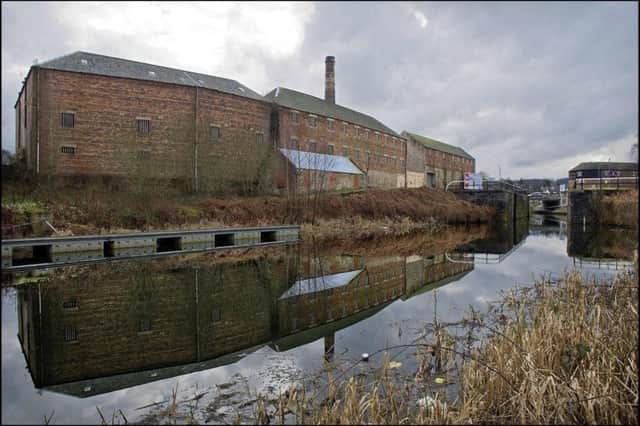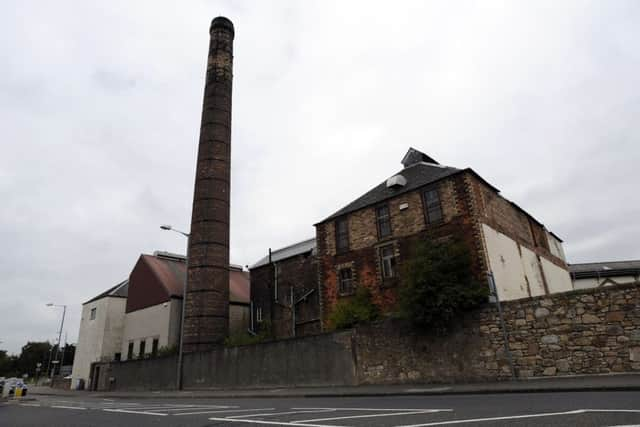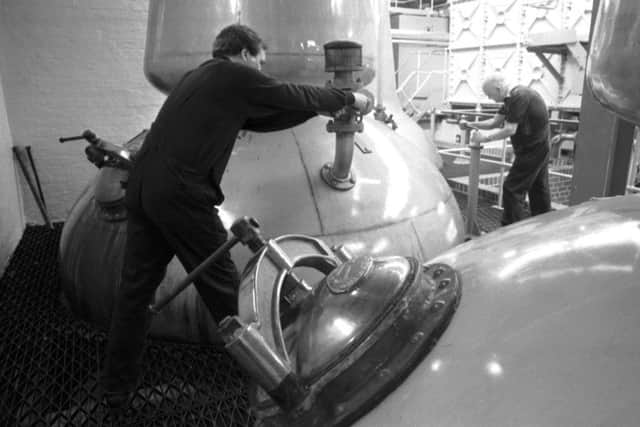Plan to revive Rosebank, '˜the King of the Lowlands', raises spirits in Falkirk


Now whisky enthusiasts are raising their glasses in anticipation of Rosebank distillery and its eponymous star brand resuming operation for the first time since 1993.
While many tourists mistakenly presume Scotch is an industry found only in the Highlands and Islands, Rosebank was just one of many operations found in towns and cities across the Central Belt. Based on the banks of the Forth & Clyde Canal in Camelon, a suburb of Falkirk, it became famous for its triple-distilled process.
Advertisement
Hide AdBut while other Lowland rivals like Clydebank’s Auchentoshan continued to thrive throughout the 1990s, Rosebank’s former owners mothballed the plant, blaming refurbishment costs.


The landmark building cut a rather forlorn sight when approaching Camelon from the town centre as its bonds lay empty and its copper stills were stolen for scrap.
Then in October Ian Macleod Distillers, a family-owned firm based in Broxburn, announced it had struck a deal with owners Diageo to reopen Rosebank as well as buying up its remaining stock.
“Rosebank is one of the most respected and sought after single malts in the world,” declared managing director Leonard Russell. “As such, this is an extraordinarily exciting project for us. To bring back to life an iconic distillery and quintessential Lowland single malt is truly a once in a lifetime opportunity.”
Rosebank was once dubbed ‘the King of the Lowlands’ and the late whisky writer Michael Jackson described its demise in 1993 as “a grievous loss” to the industry.


Bairns - as Falkirk natives are known - are delighted at the planned revival. Local historian Ian Scott said the story of Rosebank could be traced to John Stark, who first opened a distillery in Camelon around 1827. The business passed into the hands of the Gunn family and in 1840 they sold the maltings to James Rankine, who opened his own distillery and gave it the name Rosebank - which Scott believes could refer to an earlier venture in the nearby village of Laurieston.
Advertisement
Hide Ad“Under Rankine’s management Rosebank prospered, taking over the small Camelon Distillery in 1862 and turning it into the maltings,” Scott wrote in the Falkirk Herald.
“Many new buildings were constructed and steam engines were employed to pump the water and spirit throughout the works. The annual output by the 1880s was over 120,000 gallons and the bond had space for half a million.
Advertisement
Hide Ad“As a triple distilled Lowland malt, it was in high demand. For most of the 20th century, Rosebank, as part of United Distillers, was a financial success. However by the early 1990s the company complained about the costs of meeting EU directives and they suspended and eventually ended production.”


The bonded warehouse was sold off and is now a restaurant. New copper stills and worm tanks will also be required after thieves stole them for scrap metal.
But its new owners are in confident mood after securing an £80m refinancing deal last month.
Ian Macleod, founded by Leonard J Russell senior more than 80 years ago, said the agreement would “position the business for its next phase of growth”.
The refinancing deal came as figures in November showed that, in the first nine months of the year, exports of Scotch whisky rose by 11 per cent to more than £3 billion.